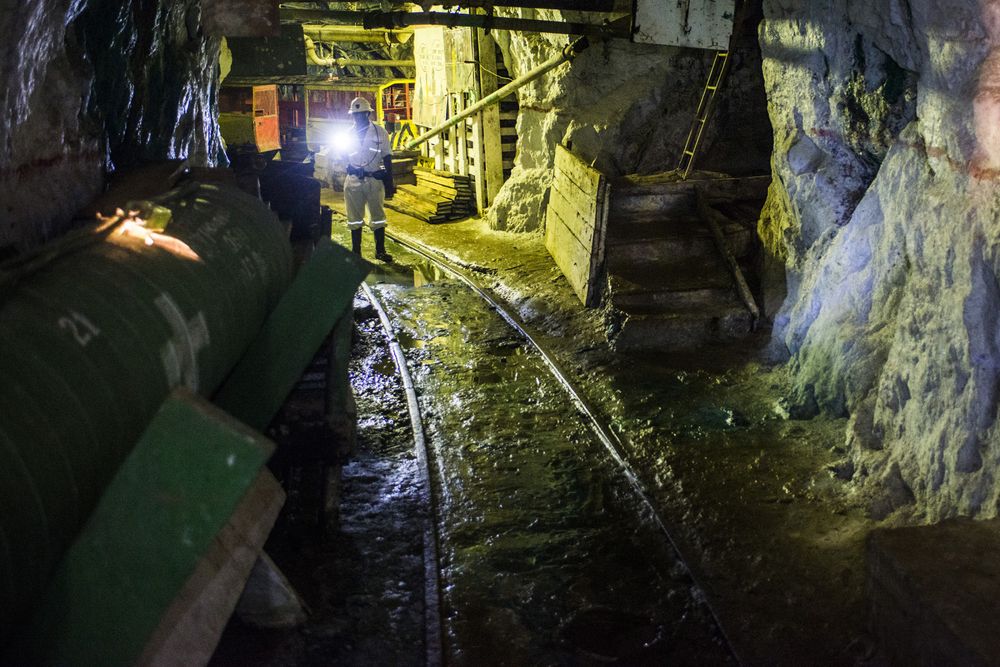- FG Acquires Drilling Rigs for Minerals Exploration
In a bid to make the mining sector to contribute more to the Gross Domestic Product, the Federal Government has acquired two drilling rigs to be used in the exploration of minerals deposits across the country.
At the inauguration of the rigs in Abuja on Monday, the Minister of State for Mines and Steel Development, Mr Bawa Bwari, said with the new acquisition, the government had demonstrated the will to diversify the nation’s sources of revenue.
The minister also inaugurated the installation of seismometers, equipment that can help the nation to pick up early warnings on possibilities of earthquakes across the country.
Bwari said, “As we are all aware, one of the policy thrusts of the present administration is the diversification of the economy hinged mainly on development of solid mineral resources. Considering the mining sector value chain, exploration is key to its success. The Nigerian Geological Survey Agency, being the key agency of the ministry involved in exploration, much is expected in terms of delivering on quality geoscience data.
“However, because of poor funding, a lot of her activities have been hampered by dysfunctional facilities that include obsolete drilling rigs. This negative narrative is changing because of the new thrust of the administration of President Muhammadu Buhari.”
He added, “New field vehicles and state-of-the-art exploration equipment have been procured. Some laboratory facilities have been rehabilitated and inaugurated, while greater premium on capacity building of staff is being pursued.
“In consonance with this new narrative, the NGSA has just procured two high calibre drilling rigs following the approval of the Federal Executive Council. This is against the background that the agency had been without a functional rig for the past 30 years.”
The Director General, NGSA, Mr Alex Nwegbu, said the acquisition of the drilling rigs marked a major milestone in the operation of the agency.
He said the newly acquired HYDX-5A rigs had the capacity of probing down to 1.5-kilometre depth, an unusually impressive capacity.
According to him, the rigs can also be adapted for borehole drilling.
Newgbu said with the acquisition of the rigs, the agency could now be sure of the geological data that it would generate.
While at the premises of NGSA, the minister also inaugurated the installation of seismometers for use in the detection of earthquakes.
He explained that the installation of the equipment became necessary following the tremor that shook some parts of the Federal Capital Territory recently, admitting that climate change had forced the government to have a rethink on its stand on the possibility of earthquakes in the country.
Bwari stated, “You know of the recent occurrence of tremor in Abuja. Two years ago, there was one in Kwoi, Kaduna State. After the Kwoi incident, we said we have to be proactive. We budgeted for seismometers. We bought them. As we were about installing them, the Abuja occurrence took place.
“Today, we are going to install one seismometer in Abuja out of the six we intend to install across the country. They will be installed based on geological requirements.
“A lot is happening in the world as per climate change. So, some of the things that ordinarily we should not expect are happening in a lot of places. You see floods in areas that you never expected flood would take place.
“So, today, we cannot pretend that we are not prone to this kind of occurrence. It has happened and we have all witnessed it. The ministerial committee we set up will start sitting on Thursday.”
A presidential committee on the incidence recently submitted its report, saying that the country should be wary of the possibility of earthquakes.

 Forex3 weeks ago
Forex3 weeks ago
 Naira2 weeks ago
Naira2 weeks ago
 Billionaire Watch2 weeks ago
Billionaire Watch2 weeks ago



 Naira3 weeks ago
Naira3 weeks ago






 Naira2 weeks ago
Naira2 weeks ago




 Naira1 week ago
Naira1 week ago




 Naira4 weeks ago
Naira4 weeks ago






 Naira1 week ago
Naira1 week ago
























